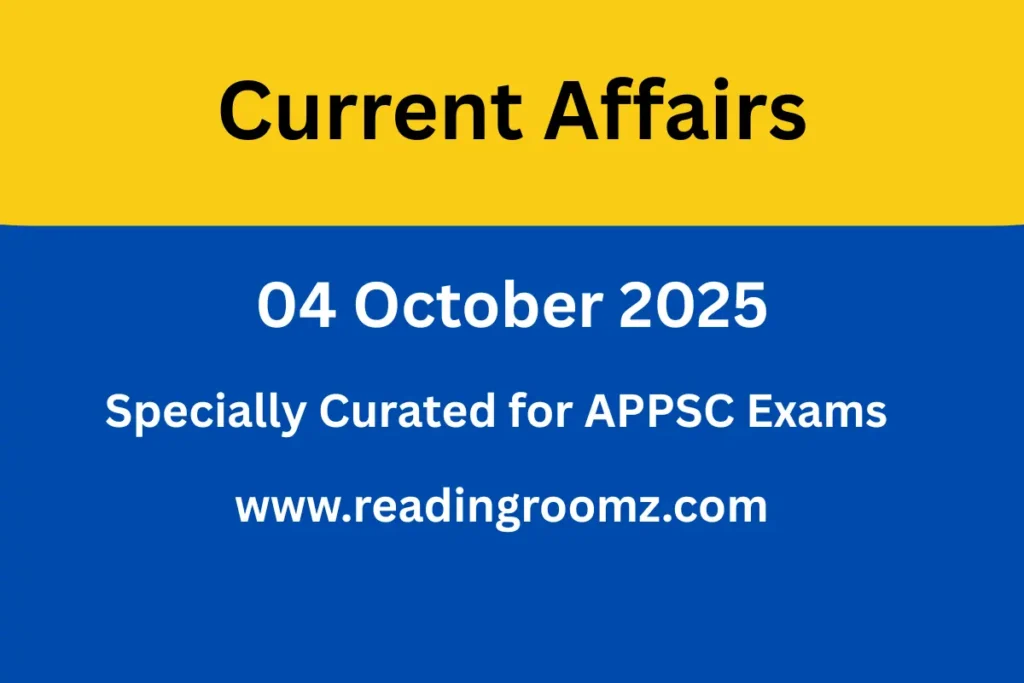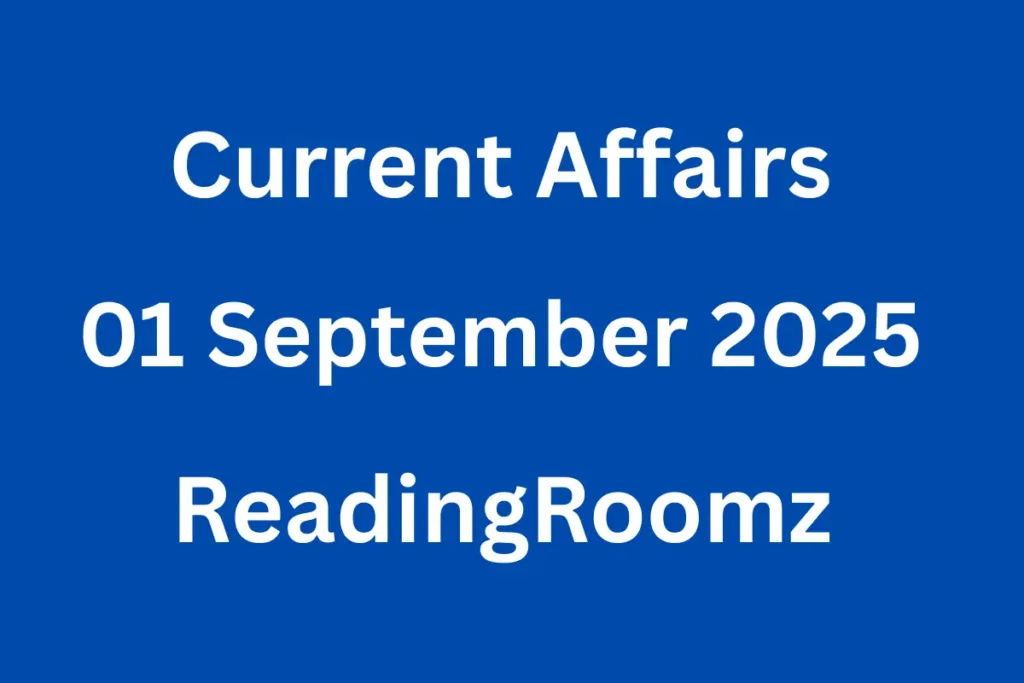Current Affairs 04 October 2025
Table of Contents
PIB Current Affairs
PM SETU Scheme
PM SETU – Pradhan Mantri Skilling and Employability Transformation through Upgraded ITIs.
- The PM-SETU scheme aims to transform India’s skill development ecosystem by upgrading 1,000 Government Industrial Training Institutes (ITIs) into modern, industry-driven skill hubs.
- Total investment is ₹60,000 crore (centrally sponsored scheme).
- The PM SETU scheme will be implemented on the “Hub and Spoke” model.
- 1,000 Government ITIs to be upgraded — 200 “Hub” ITIs and 800 “Spoke” ITIs.Each hub will connect to four spokes, forming a regional skill development cluster.
Central Observers for Elections
The Election Commission of India (ECI) appointed 425 Central Observers for the Bihar elections. Central Observers are appointed under Article 324 of the Constitution and Section 20B of the Representation of the People Act, 1951.
India conferred with the International social Security Association (ISSA) Award 2025
India has been honoured with the International Social Security Association (ISSA) Award 2025 in the category of ‘Outstanding Achievement in Social Security’, recognising its remarkable progress in expanding social protection coverage. The award was received by Union Labour and Employment Minister Dr. Mansukh Mandaviya at the World Social Security Forum (WSSF) 2025 held in Kuala Lumpur, Malaysia. As per the International Labour Organisation (ILO), India has significantly expanded its social security coverage from 19% in 2015 to 64.3% in 2025, reaching over 940 million citizens. A key contributor to this achievement is the e-Shram portal, which has successfully registered more than 300 million unorganised sector workers within four years, creating a comprehensive digital database for social welfare schemes.
Daily Current Affairs Quiz
Test your knowledge with exam-oriented multiple choice questions based on today’s current affairs.
Daily Current Affairs PDF
Frequently Asked Questions (FAQs)
-
How to cover Current Affairs for APPSC?
For UPSC/APPSC, cover at least 12 months of current affairs, focusing on government schemes, international relations, economy, and science-tech. Use a standard newspaper (The Hindu or Indian Express), PIB, and monthly current affairs compilations. Revision is the key.
-
How to study Current Affairs effectively?
Follow a daily, weekly, and monthly cycle (read daily → revise weekly → consolidate monthly).
Use quizzes and flashcards for retention.
Link current affairs with static subjects (e.g., link a budget update with Indian Economy syllabus). -
Is PIB good for current affairs?
Yes, PIB (Press Information Bureau) is one of the most authentic sources for government-related news, schemes, and policies. It is especially important for APPSC exams. However, PIB articles are lengthy and often technical, which makes them difficult to follow.
-
What is PIB in current affairs?
PIB stands for Press Information Bureau, the nodal agency of the Government of India that releases official press notes, policies, and updates. For current affairs, PIB provides information on government schemes, policies, economic reports, cabinet decisions, and important programs. important.
-
How to use PIB for current affairs?
To use PIB effectively, aspirants should:
Focus only on exam-relevant articles (schemes, policies, economy, environment, international relations).
Make short notes for revision.
Link news with static subjects (e.g., Budget news with Economy).
Since this process is time-consuming, Readingroomz Current Affairs saves aspirants’ time by already filtering PIB and other sources, giving you ready-to-read notes + quizzes + PDFs every day.
Disclaimer: The subheading “Hindu Current Affairs” used in this article refers only to current affairs content sourced from The Hindu Newspaper. This section is provided solely for educational and informational purposes to assist competitive exam aspirants in their preparation. We do not claim ownership of the original reporting, and all credit belongs to The Hindu.


